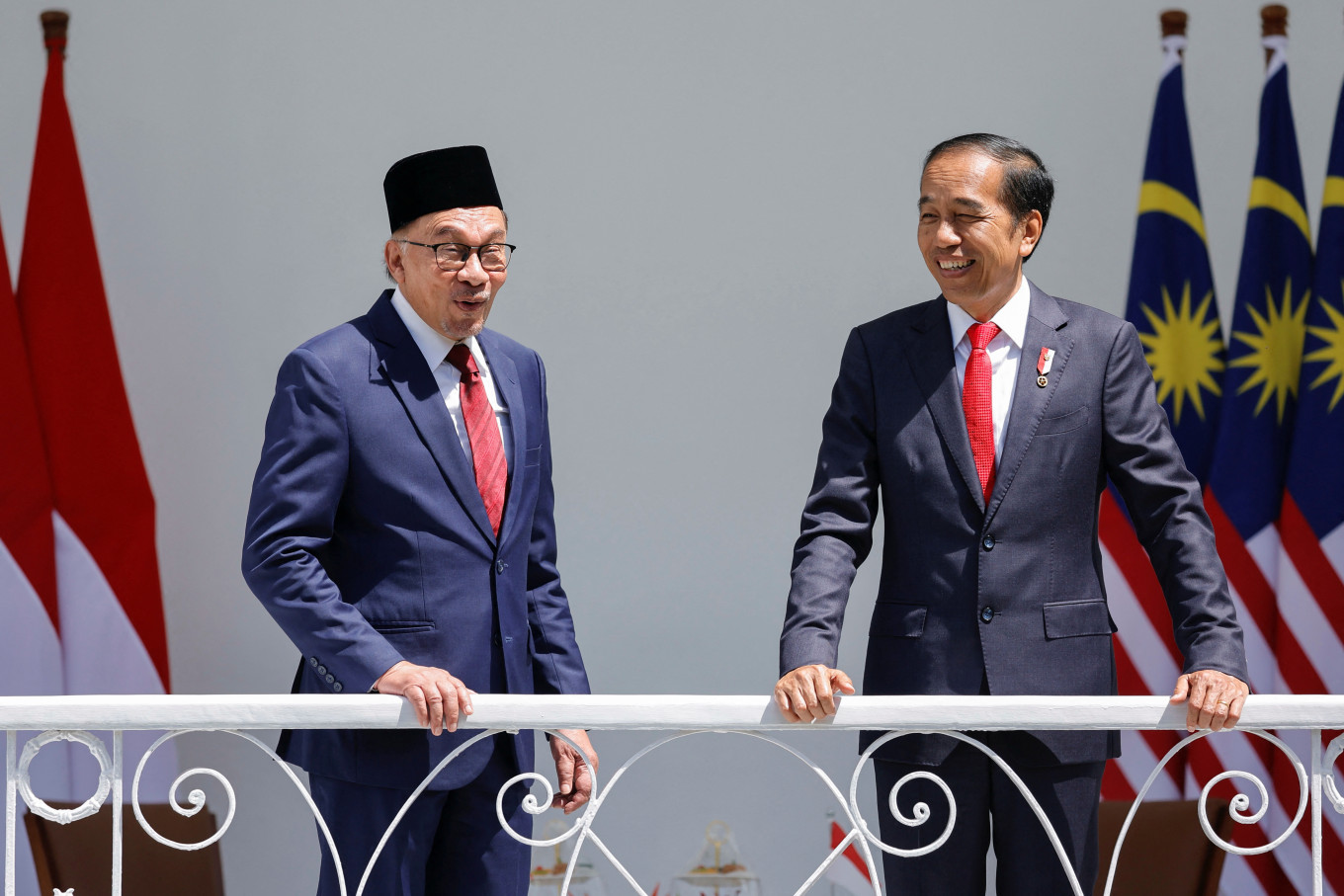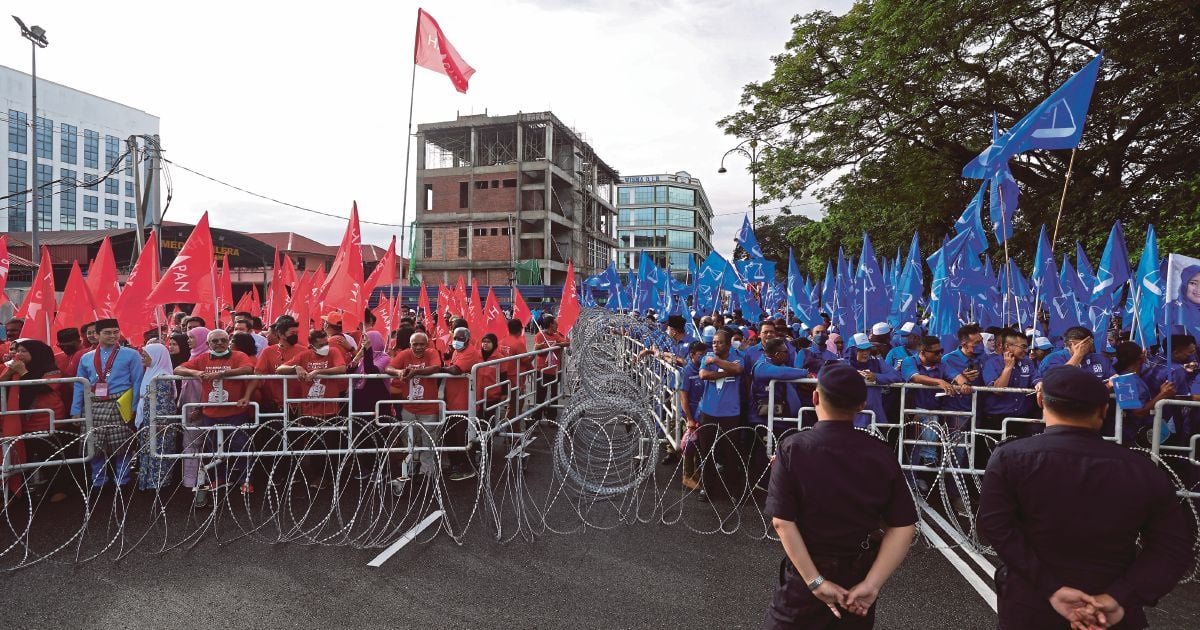Yazar: Abdullah Alkatheri - 16.02.2023 On 24 November, Anwar Ibrahim was sworn in as the tenth prime minister of Malaysia after decades of a journey which involved him serving as a deputy prime minister, a prisoner, and a veteran opposition leader. His appointment came after an election where no single coalition succeeded to gain a single majority in parliament to form a government. Malaysia’s fifteenth general election results were shocking given that Barisan Nasional (BN), the right wing long-ruling coalition after independence for 61 years has only won 30 seats presenting their worst performance ever in electoral history, whereas PAS the Islamic party surprisingly secured 49 seats becoming the largest representation in parliament. Following a fierce period of campaigning, Pakatan Harapan (PH) the centre left multi-ethnic coalition that is led by Anwar Ibrahim won 82 seats out of 222 seats, while Perikatan Nasional (PN), the ethno-nationalist Malay, Muslim coalition which is comprise of Bersatu and PAS headed by Muhyiddin came second securing 74 seats. Most strikingly among the results perhaps, former prime minister, and the father of Malaysia’s modernization, Mahathir Mohammed at the age of 97 failed not only to maintain his Langkawi constituency seat, but also to pass the threshold. His defeat was the first since 1969 remarking an end of his political career. As such, the tight election resulted in a hung parliament for the first time in Malay history where there was no clear winner to form a government, and ultimately King Al-Sultan Abdullah Sultan Ahmad Shah stepped in to exercise his constitutional power in determining who retained the majority to form a government. The king expressed his wishes for a strong and inclusive government to carry out its duties and overcome years of political instability, and suggested the formation of a unity government between Anwar and Muhyiddin. Muhyiddin rejected however, claiming that he has a simple majority for ruling. Later, after days of negotiations Anwar finally succeeded to create a unity government with the BN. Rather expectedly, after the appointment of Anwar, this was followed by Muhyiddin challenging him to prove that he has the majority in parliament. The government was then forced to call a confidence vote in the special parliament session to show strength and clear doubts of retaining the majority. Can Anwar ensure stability? The current political turmoil in the Malaysian political scene can be traced back to the unprecedented resignation of the former PM Mahathir Mohammed who was the chairperson for the PH coalition in the previous general election in 2018. Mahathir then addressed his intentions to form a unity government in a process that showed conjecture of preventing his promised successor Anwar, however he failed to gain the lawmaker's support. Later, Muhyiddin managed to secure a simple majority allying with BN, and the move was received as betrayal by Anwar’s coalition PH in forming what was called a “backdoor government.” Since then, Malaysia's political situation has been laying on shaking ground due to the political instability that resulted from party infighting and splits, and the three prime ministers have succeeded each other without reigning a two-third majority. So far, Anwar appears to have managed to gain the support of 148 lawmakers’ reflecting supermajority to form his government in an agreement with the political parties for a five-year full term, that no other former prime minister has had succeeded to retain in parliament since 2008. The alliance between the two coalitions PH and BN was unexpected, since UMNO the dominant party of the BN coalition has been taking the stage as the defender of ethnic Malay rights for decades, while the PH coalition advocates for racial equality. The deal also resulted in concessions in Anwar's cabinet, represented in the appointment of UMNO president Ahmad Zahid Hamidi as one of the two deputy prime ministers, who is still facing charges of corruption in court. For some observers, Zahid’s appointment could stain Anwar's government, but at this point, survival of his government by retaining UMNO support appers to be the ultimate priority. At the same time, it is essential and will require a lot of work from Anwar to balance between the people who voted for him to fulfil the promises of reforms, above all fighting corruption and bringing racial equality whilst maintaining the alliance with BN and win the trust of the Malay but also the Muslim community, which consider him too liberal. However, through time he might find himself constrained by the parties he allied with. So ultimately the challenge that faces and threatens the stability of Anwar’s government lies in the use of the race and religion card by the opposition parties, not based on policy. What the future holds Malaysia’s foreign policy is characterised by peace relations and neutrality and the new government does not seem to have a radically different approach; as Anwar has addressed before the election, Malaysia should not take any side in “global politics”. More specifically, Anwar who has good relations with the West claimed that his country “cannot ignore the importance of the rising China,” in expressing China's economic impact and Malaysia-China trading partnership. So it is safe to assume, for the time being, that Malaysia will maintain its non-alignment policy toward the growing US-China rivalry. At the same time, it appears that Anwar may well opt for a more visible international presence, endeavouring to recover Malaysia's position as an advocate for global issues, promoting diplomacy on multilateral platforms, and strengthening the bilateral relations especially in the Southeast Asia region. Nevertheless, as the old saying goes, “it is the economy” and this holds true for Malaysia’s foreign policy too. Anwar's appointment came at a critical time where the economy is in recession and recovering from the Covid phase. Anwar, who is also the finance minister, recently claimed in parliament that "This year's economic performance is encouraging as a result of the reopening of the economy in line with a shift to a COVID-19 endemic phase." It is true that because of the easing of the restrictions in place due to the pandemic in April, the Malaysian economy has improved, but the global economic situation continues to affect the growth of exports and slowing the economic recovery in return. The propsects of Anwar’s foreign policy will thus depend not only on his ability to chart a stable path, but also sound economic policies. Quite a few observers think that Anwar will be able to provide the long-term economic solutions and make Malaysia an attractive destination for investors, and for that Anwar will attempt to achieve “global integration” through orienting the domestic policy with the best international practices. If he succeds in doing that, he may well get the chance to leave his mark on the international fora.



Anwar is no longer the PM in-waiting